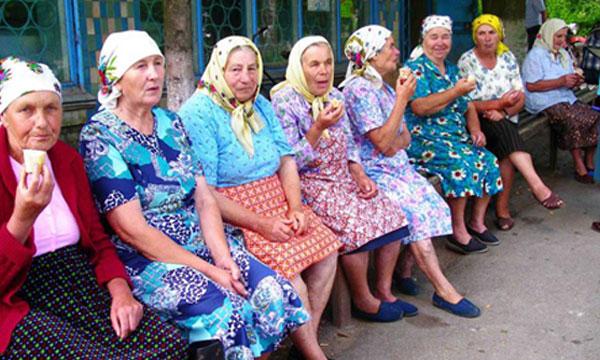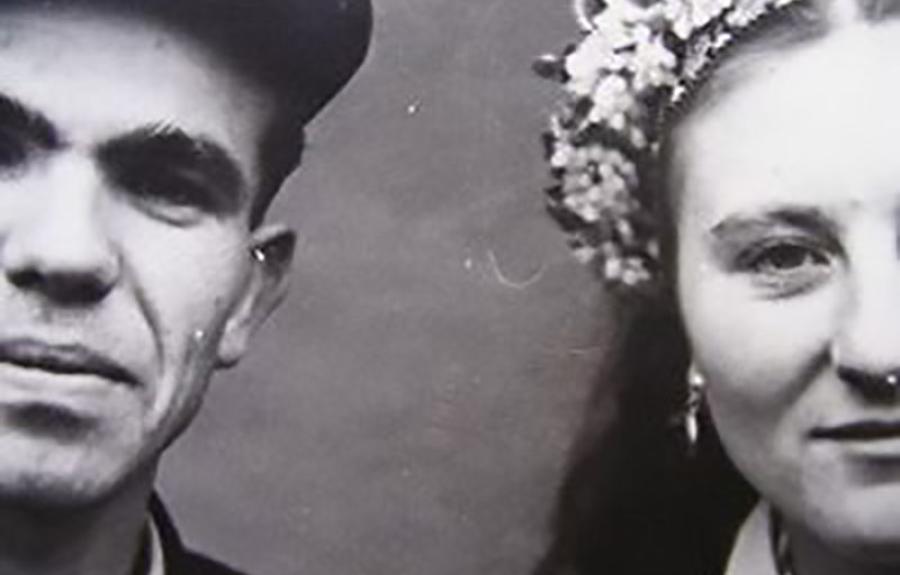The Ukrainian Time Machine

In 2006, filmmaker Naomi Uman retraced her great grandparents’ emigration from Eastern Europe in reverse, settling in the tiny village of Legedzine, Ukraine (about 250 kilometers south of Kyiv), where she lived on and off for ten years.
One result of her adventures was “a quietly picaresque quintet of 16mm films, The Ukrainian Time Machine. In capturing the joys and hardships of her neighbors’ centuries-old way of life…Uman created a new kind of living history, fresh with curiosity and verve.” (School of the Art Institute of Chicago)
Tonight we’ll show three of the films. Unnamed Film (55 mins) is a beautiful documentary about life in Legedzine, cataloging its inhabitants’ various strategies of labor and resourcefulness, their heartiness and warmth. It will be bookended by Kalendar (12 mins), a poetic collection of shots, one for each month of an entire year; and Coda, a black-and-white epilogue encapsulating the themes of the series as a whole.
At a time when we are witnessing the senseless destruction of Ukraine and its people on a daily basis, we offer a glimpse of what life was like not so long ago, and a window into the soul of a nation that is fighting for its very existence.
In Ukrainian. Paraphrased subtitles in English.
The program will be offered for FREE. For patrons looking for ways to help, flyers will be available that list international organizations providing humanitarian aid and emergency relief within Ukraine and to refugees in Europe and around the world.
Program
Kalendar (2008, 12 minutes)
A poetic collection of shots, one for each month of an entire year. This silent film obliquely tells the story of language acquisition. The filmmaker, struggling to learn a new language, comes to understand that the names of the months of the year have concrete manifestations.
Unnamed Film (2008, 55 minutes)
This film is presented in chronological order, revealing the world the filmmaker is discovering in her quest to become an immigrant in the land her great grandparents abandoned over 100 years ago.
Coda (2008, 4 minutes)
A black-and-white epilogue encapsulating the themes of the series as a whole. This tiny film is a poem which recapitulates many of the ideas presented in the earlier films and serves as a tiny song/verse to remind the viewer of the things that have come before and the things which will continue in the future.
About the filmmaker
Having studied cooking and worked in kitchens for many years, Naomi Uman decided to dedicate herself to making beautiful things that lasted longer than the duration of a meal. Always interested in what can be made with one’s hands, or coaxed from the soil, she decided to use filmmaking as a vehicle to explore the worlds of those whose lives depend on these practical abilities. Her films clearly reveal her relationship to the subject, always recognizing the deforming presence of the camera. There is an intimacy to her work which often focuses on women and their role in their society.
Her experimental documentary films have been exhibited widely at the Sundance and Rotterdam International Film Festivals, The New York Film Festival, and the San Francisco International Film Festival, among others. She has also screened her work at The Guggenheim Museum, The Whitney Museum of American Art, The Smithsonian, and Mexico City’s Museo de Arte Moderno. She has received awards from the National Endowment for the Arts, The Guggenheim Foundation, Creative Capital, Tribeca Media Arts, and she was a 2007-8 Fulbright Scholar. Naomi received an MFA in Filmmaking from California Institute of the Arts in 1998 and currently lives in Mexico City.
Cosponsored with the Institute for European Studies.

